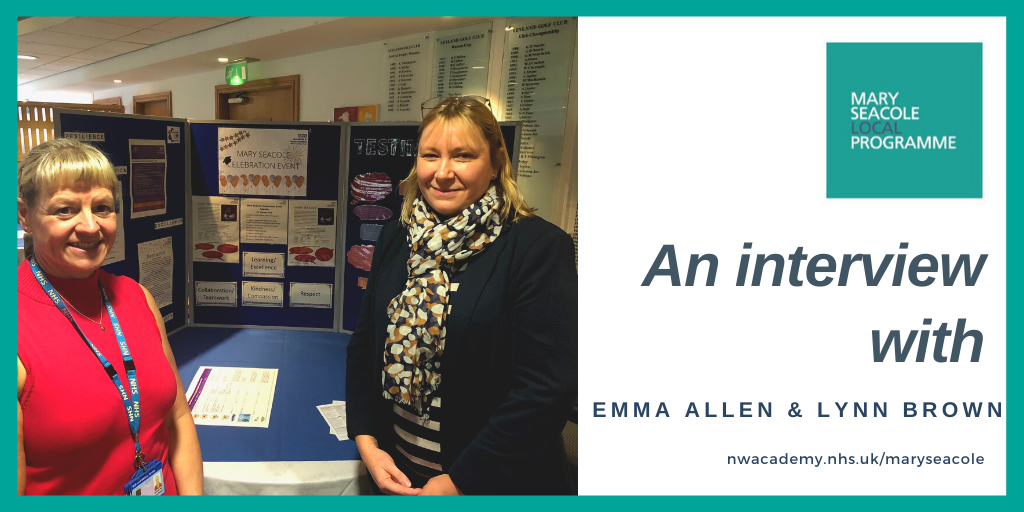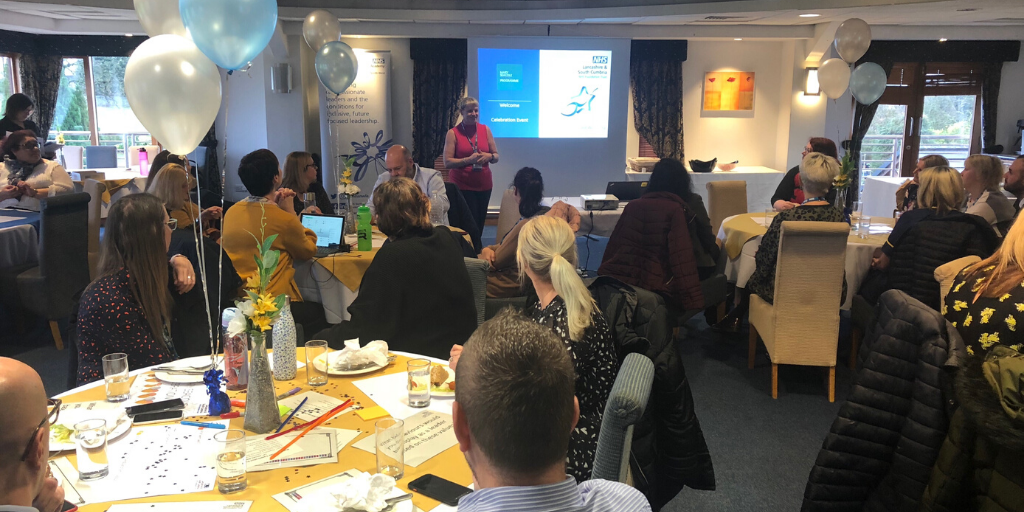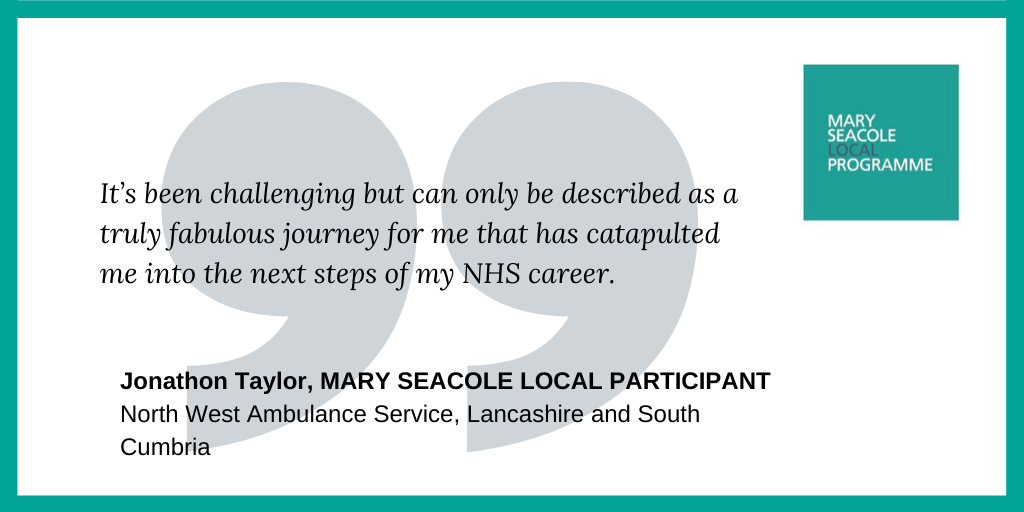Behind the scenes on delivering the Mary Seacole Local Programme
Behind the scenes on delivering the Mary Seacole Local Programme

Facilitators from Lancashire & South Cumbria NHS Foundation Trust talk through the work that goes behind delivering the Mary Seacole Programme.
Mary Seacole Local (MSL) is intended to ensure that those in their first leadership role, can access the programme from an organisation within the same geography, at a significantly reduced cost. The localisation of the programme also aims to increase its reach; both in terms of delegate numbers and organisational/wider system spread.
Emma Allen, Strategic Lead for Equality, Diversity and Inclusion and Lynn Brown, PA to the Head of OD at Lancashire & South Cumbria NHS Foundation Trust, share their experience on delivering the Mary Seacole Local Programme.
Q&A
Emma and Lynn describe their collaboration as a ‘dream team’ working together on the programme:
Emma – We are quite new to delivering Mary Seacole Local and we are part way through our second cohort. So far, we have a 100% pass rate and we are putting a lot of pressure on ourselves (and hopefully not our delegates) to keep it up!
Lynn – We are trying to really support our delegates through the process – studying for the first time in a while can be scary so we want them to come to us with any concerns they have. We can work things out together!
Emma – Lynn and I have worked together for a long time, but this is the first time we’ve collaborated on something like this. It’s been enormous fun and we’ve learned so much from each other. Lynn is the organised one who does all the hard work – I wouldn’t be able to do this without her. I love rocking up and facilitating though if Lynn tells me where to be!
Lynn – Emma and I work well together as we bounce well off each other, Emma has more experience with dealing with staff matters so we have a good mix which works well.
What has been your biggest learning experience as an MSL facilitator?
Emma – We’ve learned to watch and listen to our delegates as they give you signals about when to speed up, slow down, adapt your approach. I’ve also seen the value in sharing some of my own vulnerabilities as a leader. Being open about my own experiences and challenges has instilled trust and confidence in the delegates.
Lynn– The biggest learning is around listening to the candidates and passing on your experiences and tips that have been picked up from other cohorts. The candidates always have something of value to say and that is good learning for us as facilitators to bring back to the OD team.
What would you say the benefits of the scheme has been in your patch; having mixed MSL cohorts learning and sharing together from across the health and social care system?
Emma – The mixed cohorts have brought a range of experiences and new ideas which can be shared across the different organisations. We have used the sessions as an opportunity to impact positively on culture too – challenging some attitudes and getting people to think about their personal impact
Lynn – passing on the tips and benefits from other cohorts has been a massive benefit, as all the facilitators catch up with each other to reflect on the cohorts they have delivered. Having people on from other organisations has been beneficial as they share good practice between them. Sometimes it shows that similar things happen in other Trusts, particularly behaviours displayed by other teams.

What would say the benefits of the blend of online, face to face, modules and written assignments are for this programme?
Emma – The different learning styles included in the programme ensure that everyone has an opportunity to get the best out of the opportunity. We’ve seen people supporting less confident colleagues too which is lovely. Delegates also get a lot from personal reflections which they don’t always have time for in their busy workplaces.
Lynn – It is also good for them to have a chance to discuss any issues face to face if there is something they don’t understand from the online learning. They also enjoy discussing any issues between each other at face to face sessions.
What would be your top tips for potential applicants or participants starting the programme?
Emma– Don’t feel like you must write down every reflection you have! You can pick out the key ideas from your thinking to use in your assignment – some of the learning can just stay in your head!
Lynn – Always ask for help and don’t leave things to the last minute, particularly when it comes to uploading the assignment as if something goes wrong it is too late. Candidates need to allow themselves the permission to do their work, not many managers are forthcoming to give them time. Book the time out in advance of the programme.
Has there been a notable ‘light bulb’ moment for a participant/s or a part of the six-month programme you enjoy delivering the most?
Emma – People seem to like the RACI tool (a Responsibility assignment matrix- Responsible, Accountable, Consulted and Informed), but my favourite bit is the drawing exercise – it’s fascinating to observe how teams work together to achieve a task!
Lynn – I love the red/blue exercise because there is always lots of conflict to discuss when the game has finished, but during the exercise people don’t really realise what the purpose of the game is, until you put into their working days.
Due to the success of the Mary Seacole Local programme several candidates from the 1st and 2nd cohorts have already progressed in their leadership journey and achieved a promotion after completing the course, with many more applying their learning to further develop in their roles.

For more information you can visit our Mary Seacole Local Programme page